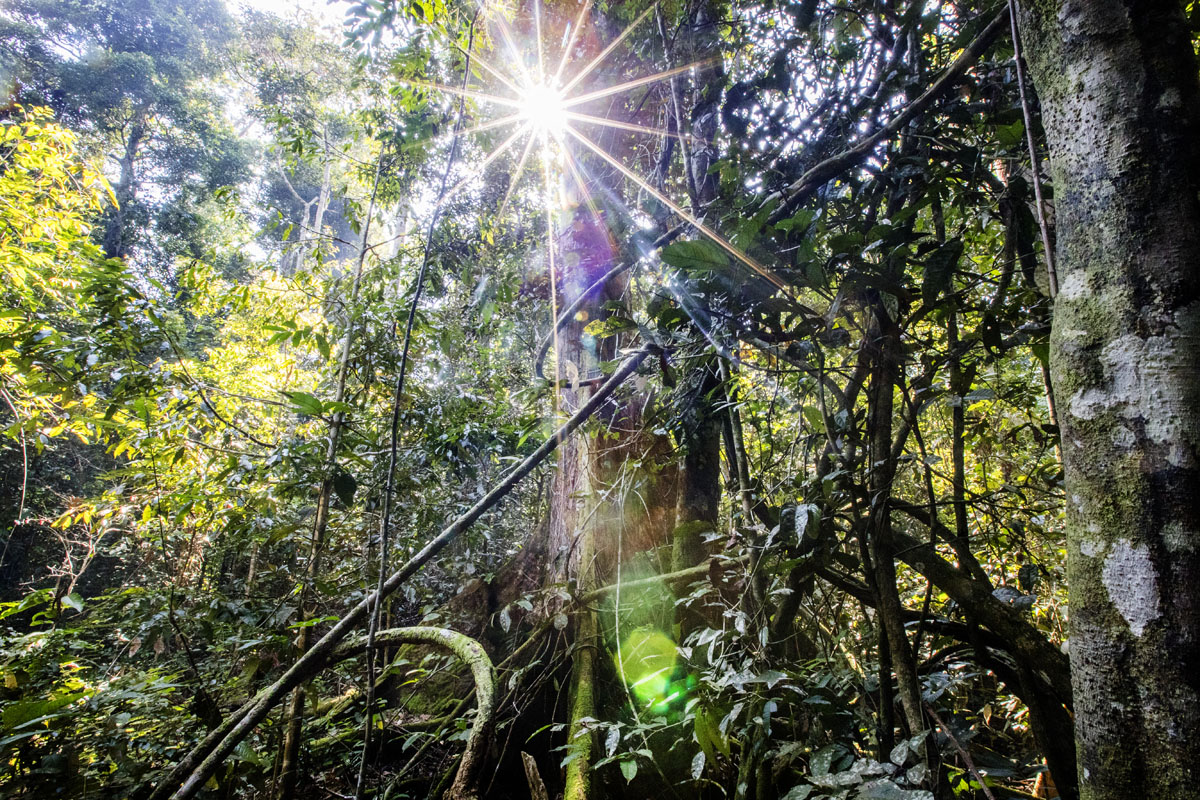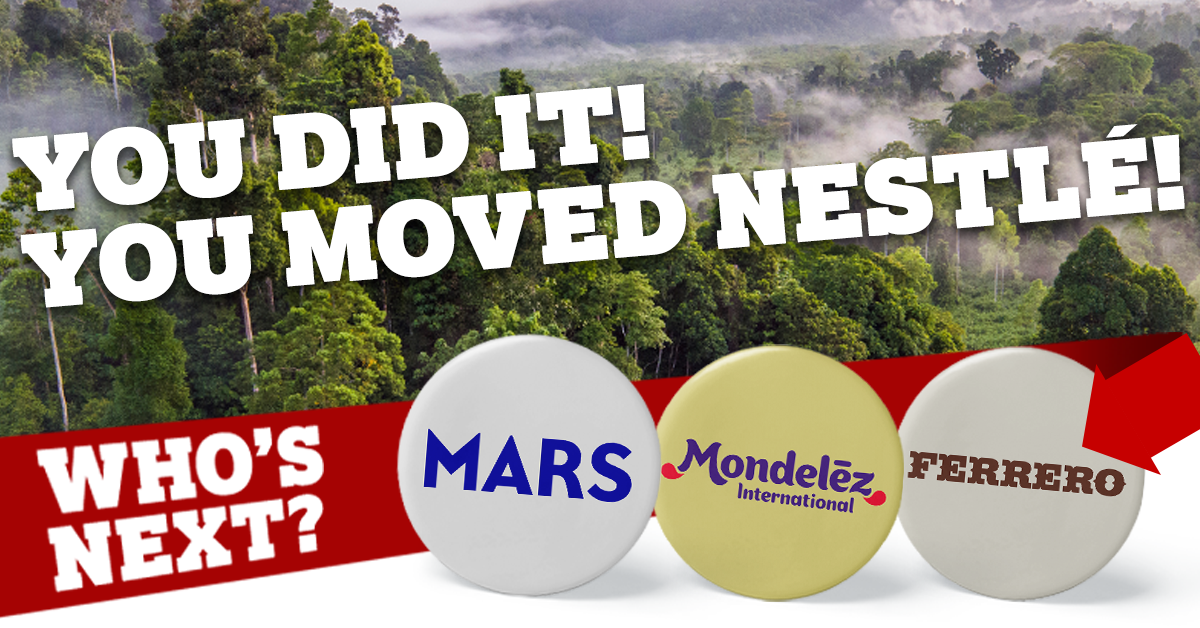1. What’s the big deal?
Thanks to your incredible partnership, Nestlé has stepped up and responded to our demands by publicly disclosing the “forest footprint” of its palm oil supply chain in Indonesia’s Leuser Ecosystem.
In other words, Nestlé has begun to do the real work of assessing and sharing publicly where and how the ingredients in its products are impacting forests, local and Indigenous communities, and critical habitat. This is the first time a major corporation has come this far. This is a big win and critical momentum: now we must get others to follow.
2. How did we do it?
Well a huge part of that was YOU. You sent over 250,000 petitions and emails to Nestlé in 2020 alone and you called Nestlé out on Twitter and Facebook, hitting it where it really counts. Then when you add in our ongoing investigations, exposés, and campaign pressure, Nestlé knew it had to make meaningful progress on its commitment to stop driving deforestation.
At RAN, we work hard to keep forests standing, protect the climate and uphold human rights by challenging corporate power and systemic injustice through our frontline partnerships and strategic campaigns. And when we rally our networks and supporters we can achieve so so much — the strategy works!
3. What does this mean for Nestlé going forward?
This is a big deal and an important first move, but it is just a first step and is by no means comprehensive. The forests and communities impacted by Nestlé need more than just transparency, they need Nestlé to act on its analysis and fundamentally change how its suppliers operate.
- First of all, Nestlé must now take steps to protect these forests and peatlands from development by palm oil producers and work alongside communities and governments to secure the legal recognition of communities’ rights across the region.
- Second, Nestlé must take immediate steps to complete the mapping of customary forest areas — areas of forests that have spiritual, cultural, and economic importance to Indigenous and local communities — and develop an understanding of community usage rights, land rights issues, and unresolved conflicts — conflicts that stem from consistent failures to respect the rights of communities to oppose palm development on their own lands.
Nestlé must go beyond this pilot exercise in the Leuser Ecosystem and follow through with further assessments of its forest footprint across the globe.
4. What does this mean for the other candymakers?
It’s time candy giants Mars, Mondelēz, and Ferrero follow Nestlé’s lead and get to work on their own assessments, disclose their impacts on forests and communities, and then act! And that’s just the start! RAN continues to call on all corporations fueling the destruction of rainforests and the violation of human rights to do what it takes to stop profiting off of deforestation and human rights abuses.
TAKE ACTION! SIGN THE PETITION!
There’s a real opportunity for these candymakers to take leadership for the entire multi-billion dollar industry — and the holiday season is the perfect time to give candy giants a big push in the right direction. Who will be next? Call on Mars, Mondelēz, and Ferrero NOW to disclose their forest footprints, respect Indigenous and local communities rights and keep forests standing.

(Photo: Paul Hilton for RAN)
